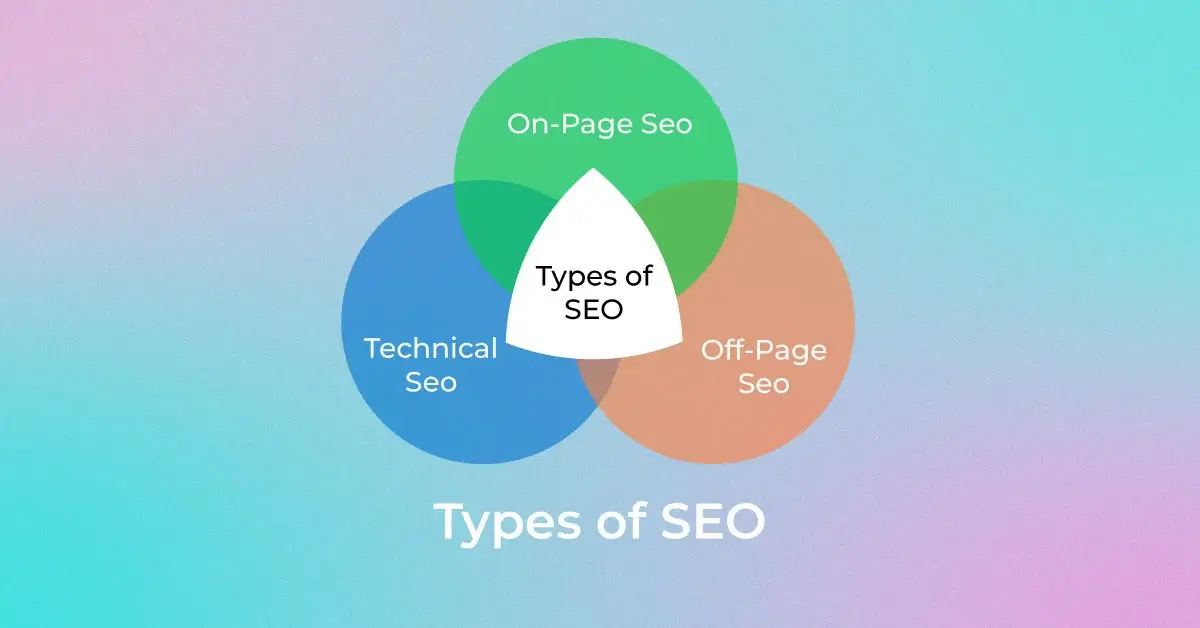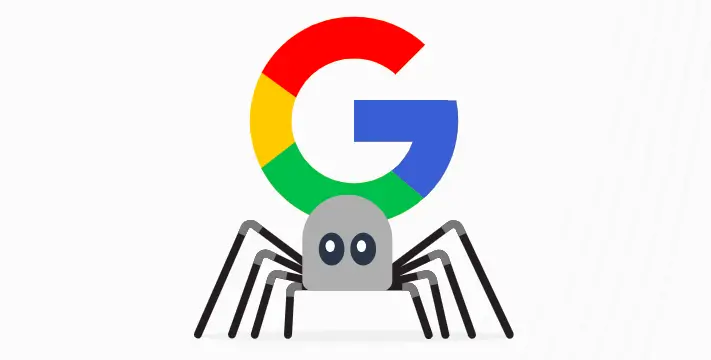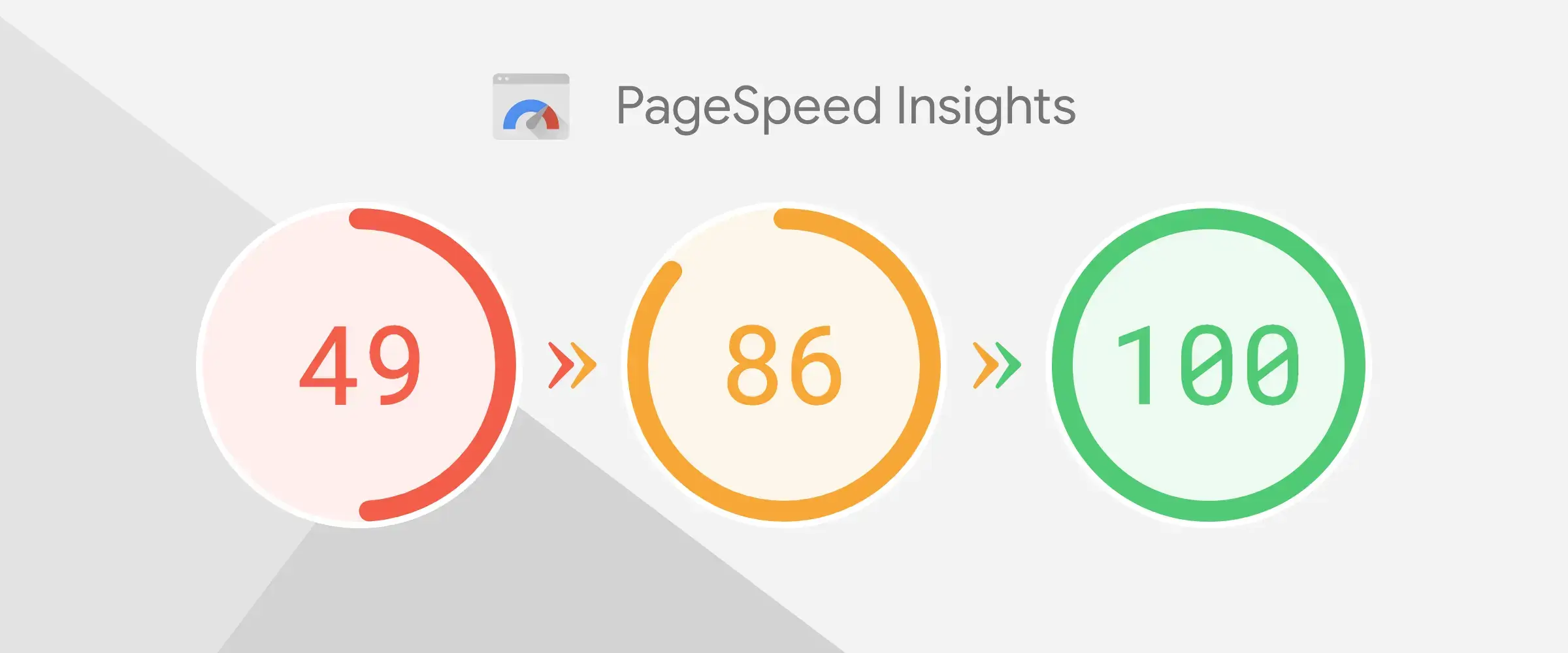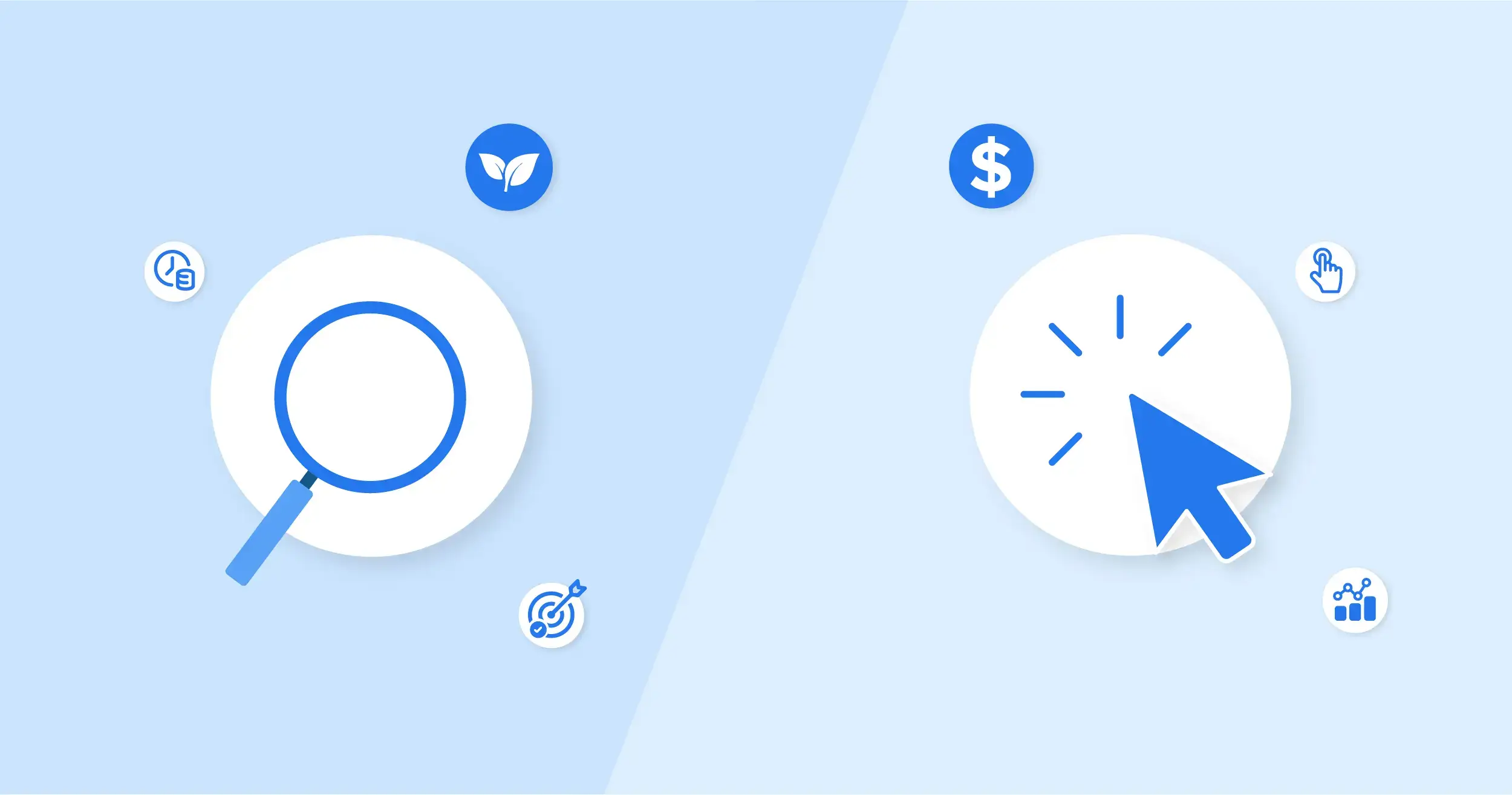SEO FAQs: Top SEO FAQs you need to know to get best results in 2024
SEO is an ever-evolving field that can significantly impact the visibility and success of a website
Sometimes site owners may have multiple questions in mind regarding SEO
Here we will address some of the most FAQs (Frequently Asked Questions) about SEO
What is SEO and its Types?

Search engine optimization, is the practice of optimizing websites, web pages, and content to improve their visibility and ranking in SERPs...
The goal of SEO is to increase organic traffic to a website by making it more relevant and valuable to search engine users.
Types of SEO
There are four main types of SEO:
On-page SEO
This type of SEO focuses on optimizing factors that occur on a web page itself.
It includes elements such as aligning with search intent and improving content quality.
It also includes strategies like optimizing meta tags and improving website speed and user experience.
Off-page SEO
Off-page SEO involves optimizing factors that occur outside of a web page...
This includes building backlinks from other reputable websites,
To social media promotion and optimizing a Google Business Profile.
Technical SEO
Technical SEO involves optimizing the technical aspects of a website,
To improve its visibility to search engines.
This includes optimizing website structure and improving website loading speed.
It also includes ensuring mobile-friendliness and implementing structured data markup.
Local SEO
Local SEO is a subtype of SEO
That focuses on optimizing a website or business for local search results.
It helps businesses appear in local search queries...
And increases their visibility to users in a specific geographical area.

About 46% of online searches are for local services and businesses.
Local SEO strategies include optimizing Google My Business listing and obtaining online reviews.
It also involves strategies from creating local citations,
To optimizing for location-specific keywords and managing online directories.
Each type of SEO plays a crucial role in improving a website's visibility...
And ranking in search engine results!
Businesses can increase their organic traffic,
And reach a wider audience locally by implementing effective SEO strategies.
How Does an SEO Strategy Work?

SEO works by optimizing various aspects of a website.
These include everything from its content
To structure and other factors that search engines consider important.
Search engines use automated programs called crawlers or spiders...
To discover and scan web pages across the internet.

These crawlers follow links from one page to another and collect information
About the content and structure of each web page.
The collected information is then stored in search engine indexes,
Which are massive databases of all the crawled web pages available.
Search engines analyze their index to find the most relevant web pages
For when a user performs any search query.
They consider factors such as the quality...
And relevance of the content and the authority of the website.
They also highly consider user experience,

Which search engines use to rank the web pages and display them in the search results.
Google utilizes more than 200 factors for site ranking!
SEO practitioners employ various strategies
To improve visibility and ranking of each site's pages in search results.
This includes conducting keyword research to identify relevant search terms...
And optimizing on-page elements.
It also involves building quality backlinks from other reputable websites,
and enhancing overall user experience of the website.
Are FAQ Pages Good for SEO?
FAQ pages are amazing for SEO!
Here are some ways FAQ Pages can help your SEO efforts:
- Improved User Experience: FAQ pages can provide valuable information and answers to common questions.
It ultimately enhances the user experience on your website. - Keyword Optimization: You can potentially rank higher in search engine results when those questions are searched for.
It is possible by using the actual questions as headers on your FAQ page. - Long-Tail Keywords: FAQ pages can help you incorporate long-tail keywords that are specific to your industry or niche.
It can improve your visibility of your website in search results. - Increased Organic Traffic: FAQ pages ranked well for relevant queries
can attract targeted organic traffic to your website. - Establishing Expertise: FAQ pages can help establish your expertise, authoritativeness, and trustworthiness.
These are important factors that search engines consider when evaluating websites.
Are keywords still important for SEO?

Yes!! Keywords are still a crucial aspect of SEO,
but the approach has evolved.
Keyword stuffing is no longer effective...
and search engines now prioritize user intent and semantic search.
It is important to conduct thorough keyword research,
to identify relevant and high-traffic keywords
and strategically incorporate them throughout your content and headings.
How does mobile optimization affect SEO?

Mobile optimization has become increasingly important,
as more users access the internet through mobile devices.
Search engines prioritize mobile-friendly websites...
and provide a better user experience for mobile users.
You NEED TO ensure your website is responsive,
and loads quickly with a clean design to optimize for mobile.
Mobile optimization can positively,
Or negatively impact your SEO rankings and overall user engagement.
Is Content Still King in SEO?
Yes, content is still king when it comes to SEO.
Quality and informative content helps in different SEO aspects from attracting organic traffic...
to building authority and encouraging backlinks.
Focus on creating content that answers questions
Of users and provides value,
Will get you the best results possible!
Your content must align with search intent.
Make sure to Incorporate relevant keywords naturally,
Optimize meta tags,
And formatting for better visibility in search results.
Why Businesses Need SEO?

Businesses of all sizes and industries need SEO to succeed at present.
About 61% of digital marketers believe that SEO is key
For online visibility and success of businesses.
Here are some key reasons why businesses need SEO:
- Increased Online Visibility
- Higher Organic Traffic
- Higher Conversion Rates
SEO helps businesses improve their online visibility
By optimizing their website and content to rank higher in SERPs.
It also increases the chances of attracting organic traffic
And potential customers when your website appears on the first page of search results.
Organic search is often the primary source of website traffic.
Businesses can attract more relevant and targeted traffic to their websites
By implementing effective SEO strategies.
This means reaching people who are actively searching for products...
Or services similar to what the business offers.
SEO helps businesses attract highly targeted traffic,
That is more likely to convert into leads or customers.
Websites appear in search results for relevant keywords.
Which means your business is trustworthy and authoritative.
This can result in higher conversion rates and a positive impact on your bottom line.
How Long will It take for me to See SEO Results?

SEO is a long-term strategy that requires patience and consistency.
The time it takes to see results can vary depending on various factor.
These factors typically range from the competitiveness of the industry...
to the current state of your website and the effectiveness of your SEO efforts.
Typically, it can take anywhere from a few months to a year to see noteworthy improvements.
However, ongoing optimization is important to improve rankings.
How Does Social Media Affect SEO?
While social media platforms do not impact your search engine rankings directly,
they can indirectly influence SEO.
These platforms can help improve brand visibility, direct traffic to your site, and increase engagement.
It can also lead to more backlinks and improved search rankings.
Additionally, social media profiles often appear in search results,
which helps enhance your online presence.
What are the Key Components of SEO?
Here is a brief explanation of the key components of SEO:
On-page Optimization
This involves optimizing various elements on your website. These could include the following:
- Title tags
- Meta descriptions
- Headings
- Content
You can improve the visibility and relevance of your site to search engines by optimizing these elements.
Off-page Optimization
This includes building high-quality backlinks from reputable websites.
Backlinks are an important ranking factor because they indicate the authority and credibility of your website.
Keyword Research
This involves identifying relevant keywords...
that your target audience is searching for.
You can improve visibility of your site in search engine results
by incorporating these keywords strategically into your content.
Content Creation
Producing informative and engaging content is crucial for SEO.
Good content not only attracts and engages users,
but also helps search engines understand the relevance and authority of your website.
These key components work together to improve your website's visibility, organic traffic, and search engine rankings.
You can increase your chances of attracting and retaining valuable organic traffic
by implementing effective SEO strategies.
Does Speed Affect Site Ranking In SEO?

Yes, site speed does affect site ranking in SEO.
Google considers page loading speed as one of the key ranking factors.
- A fast-loading website provides a better user experience and is more likely to rank higher in search engine results.
- Slow-loading sites not only have a negative impact on user experience but also tend to have higher bounce rates and decreased conversions.
Optimizing speed of your website is crucial for improving its visibility and SEO performance.
How to Effectively Do Keywords Research for SEO?

Here are some steps to conduct keyword research effectively:
- Understand the needs and search behavior of your target audience to determine the keywords they are likely to use.
- Generate a list of topics related to your business or industry that your target audience might search for.
- Utilize keyword research tools like SEMRush, Google Keyword Planner, or Moz Keyword Explorer to discover relevant keywords with search volumes and competition levels.
- Analyze the keywords your competitors are targeting to gain insights and identify potential opportunities.
- Focus on long-tail keywords that are more specific and have lower competition. These keywords often have higher conversion potential. About 50% of organic searches include four or above words.
- Choose keywords that are highly relevant to your content and have a decent search volume.
- Regularly monitor and refine your keyword strategy over time.
Does FAQ help SEO?
FAQ pages can definitely help improve SEO.
FAQs provide concise answers to common questions which makes it easier for users
to find the information they need quickly.
This improves user experience...
and reduces bounce rates which can positively impact SEO.
What are Some Reasons Behind Organic Traffic Drop on My Site?
There can be several reasons behind a drop in organic traffic on your site. Here are a few common factors to consider:
- Algorithm updates
- Technical issues
- Content quality
- Site Structure changes
- Google Penalty
What Does Google Penalty Mean?

A Google penalty refers to a negative impact on search engine rankings and visibility of a site,
due to a violation of Google's Webmaster Guidelines.
Google imposes penalties to maintain the quality and relevance of search results...
and to discourage manipulative or spammy practices.
There are two types of Google penalties:
Manual penalties
These penalties are manually applied by Google's web spam team
When they identify a website that violates the guidelines.
Manual penalties can result from practices like unnatural link building, keyword stuffing, cloaking, or thin content.
Algorithmic penalties
These penalties are automatically applied by Google's algorithms,
like Google Panda or Google Penguin.
Algorithmic penalties are triggered when a website's content,
or backlink profile is deemed low quality or manipulative.
When a website is penalized then its search rankings can drop significantly.
It ultimately results in decreased organic traffic and visibility.
What are Top Important Factors for Google Ranking?

Google's ranking algorithm considers numerous factors when determining the position
of a website in search engine results.
Here are some important factors that influence Google ranking:
- Content quality and relevance
- Backlinks
- User Experience
- User engagement signals
- SSL certificates
- Site architecture
- Mobile-friendliness
Is it Good to Do PPC and SEO Simultaneously?

Yes, it can be beneficial to do PPC advertising and SEO simultaneously.
PPC campaigns can provide valuable insights...
into the performance of specific keywords.
You can analyze the data from your PPC campaigns,
to identify high-performing keywords and incorporate them into your SEO strategy.
While SEO is a relatively long-term strategy...
PPC can deliver immediate results.
You can drive targeted traffic to your website,
and generate leads or sales by running PPC ads
while waiting for your SEO efforts to gain traction.
What is the Good PageSpeed Insight Score for a Website?
The Good PageSpeed Insight score for a website is typically considered to be above 90.
A score above 90 indicates that the website is well-optimized for speed and efficiency.
This score is for both Mobile & Desktop seperately,
As Google ranks them individually.
Final Thoughts
SEO is an evolving subject!
Understanding the fundamentals and staying up-to-date with best practices
can help you optimize your website for search engines.
These key FAQs will certainly help you understand the basics of SEO...
So you can incorporate these practices into your current site!








